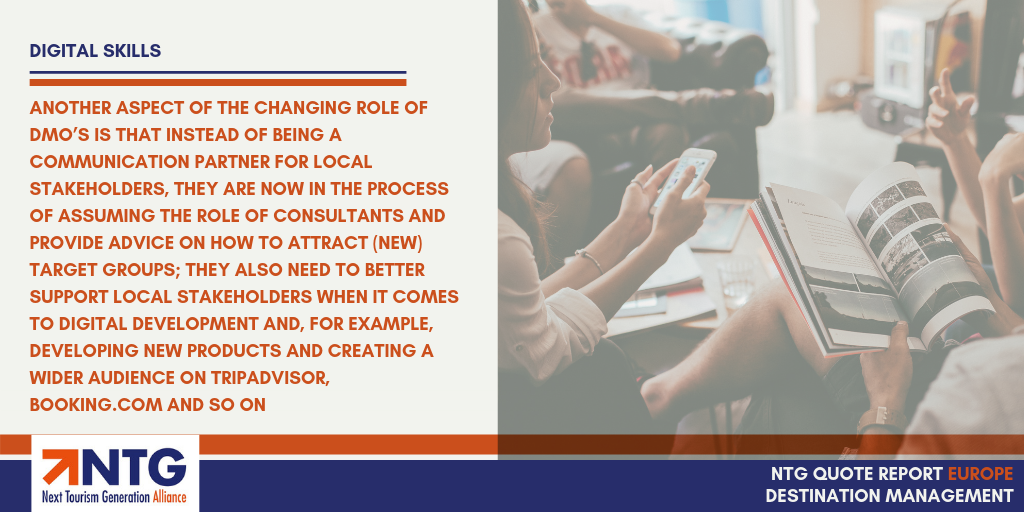Insights from destination management organizations: how to get futureproof?
Destination Management Organizations
After the finalization of the NTG desk research and survey, semi-structured interviews were conducted in all partner countries to acquire additional in-depth understanding and insights into the future of digital, green and social skills from the perspective of people working in the tourism industry. Altogether, 264 interviews were conducted in the NTG key partner countries with senior managers, human resource managers, company owners, entrepreneurs, heads of department and other relevant respondents in all five tourism sectors under investigation. This blog focuses on the most important outcomes of the destination management organizations.

Digital skills
The expectation in several countries is that DMO’s will move away from simply providing information (which visitors can access themselves through the internet) to providing inspiration and experiences for visitors. Another aspect of the changing role of DMO’s is that instead of being a communication partner for local stakeholders, they are now in the process of assuming the role of consultants and provide advice on how to attract (new) target groups; they also need to better support local stakeholders when it comes to digital development and, for example, developing new products and creating a wider audience on TripAdvisor, Booking.com and so on. In other words, community management (stimulating the network of regional/local entrepreneurs to be digitally active) will become more and more important for DMO’s.
Green skills
Skills are needed for preserving a destination in balance for future generations; for creating more leverage when it comes to tourism without increasing the numbers; for making visitors look beyond the most visited areas although these things are also considered to be the responsibility of (local) governments.
Social skills
By far the most important skills, today and in the future, are hospitality or customer service skills. These include communication skills, multicultural and diversity awareness (including catering to an increasingly aging population with various health and mobility issues), friendliness, flexibility, and emotional intelligence. Being able to ask the right questions, listening and interpersonal skills are indispensable, especially for those working in visitor centers, while commercial skills are also needed.
The future of digital, social and green skills
The Next Tourism Generation Alliance has conducted desk and field research on the future of digital, green and social skills in tourism. The outcomes have been collected in documented in research reports and visualized content. This output can be found on the research page. Furthermore, the most striking results from the interview reports can be found in attractive SlideShare presentations, please have a look to check out the quotes from the representatives from the tourism industry – Italy, UK, Hungary, Bulgary, Ireland, Spain, The Netherlands and Germany.

Follow the efforts of the Next Tourism Generation via our website, Facebook, Twitter | #NTGskillsalliance or via LinkedIn




No Comments